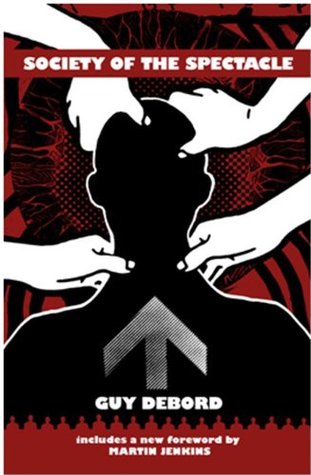More on this book
Community
Kindle Notes & Highlights
What spectacular society cannot admit is that the crisis is, root and branch, an example of the functioning of the capitalist economy as such: the black hole of the finance sector is a dysfunction inherent in the market economy and not an anomaly in an otherwise healthy system.
The supersession of capitalism does not lead to a final irenic conclusion but rather a beginning of a new phase of struggles beyond the tyranny of commodity fetishism. Such a movement beyond capitalism in a sense leaves everything to be done.
In the era of the integrated spectacle everyone is called upon to speak and act as if they are spokesmen for the spectacle. Alone or collectively we are asked: ‘What are the consequences of your action for the economy, for the environment, for ‘society’ as a whole?’ The ‘fragile perfection’ of things as they are becomes the horizon for all we do.
In order to describe the spectacle, its formation, its functions, and the forces that work against it, it is necessary to make some artificial distinctions. In analyzing the spectacle we are obliged to a certain extent to use the spectacle’s own language, in the sense that we have to operate on the methodological terrain of the society that expresses itself in the spectacle. For the spectacle is both the meaning and the agenda of our particular socio-economic formation. It is the historical moment in which we are caught.
Though separated from what they produce, people nevertheless produce every detail of their world with ever-increasing power. They thus also find themselves increasingly separated from that world. The closer their life comes to being their own creation, the more they are excluded from that life.


